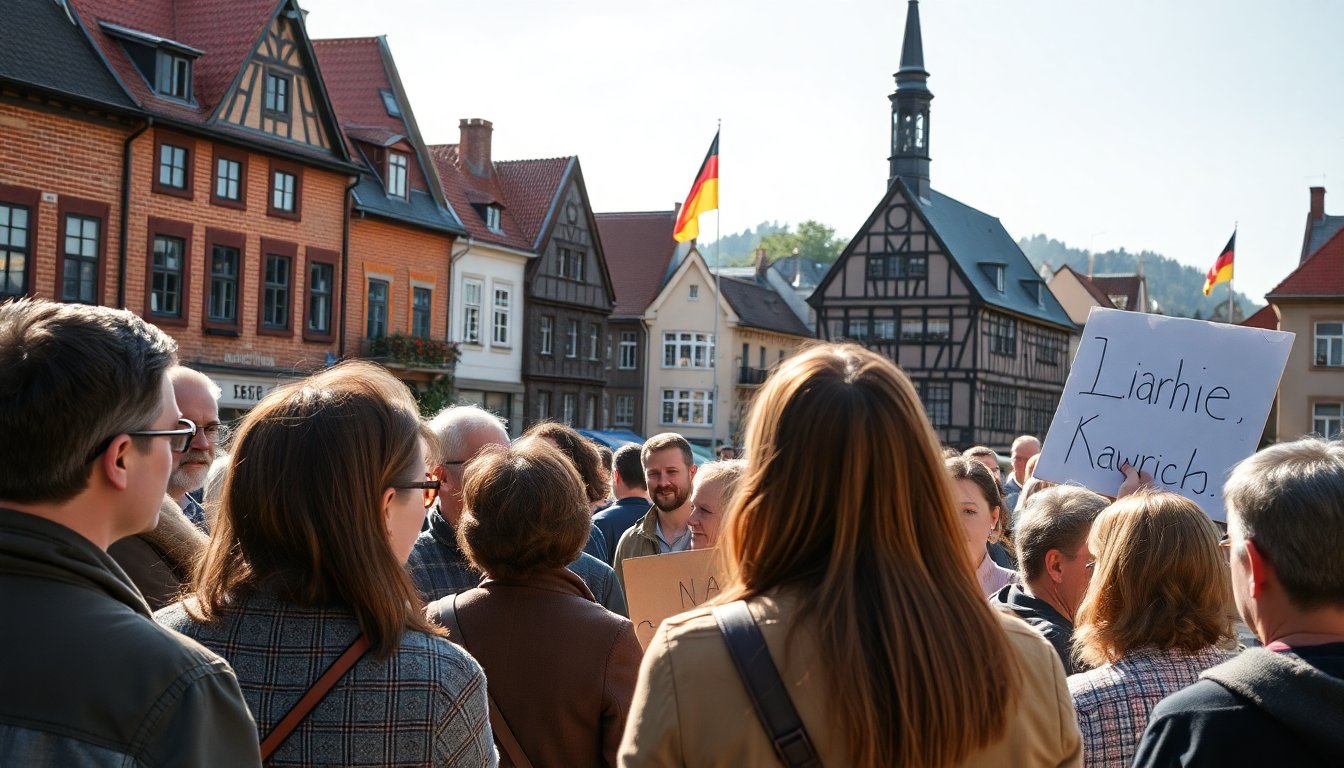Table of Contents
In the current political landscape, the Alternative for Germany (AfD) party has made headlines with a bold initiative: the nomination of former President Donald Trump for honorary citizenship in the town of Bad Dürkheim. This proposition, however, has not been without its critics, igniting a heated discussion about the implications of such an honor.
The AfD, known for its anti-immigrant and populist ideologies, believes that Trump’s actions in international diplomacy, particularly regarding the Israel-Gaza conflict, warrant recognition. But as they push for this honorary title, many are questioning whether such a gesture aligns with the values of Germany.
The AfD’s reasoning behind the proposal
Leading the charge is Thomas Stephan, a representative of the AfD in the local council. He asserts that Trump’s contributions to peace in the Middle East, particularly his role in facilitating a ceasefire during the Gaza conflict, justify the proposal. Furthermore, Stephan highlighted Trump’s familial roots in Kallstadt, a locality in the Bad Dürkheim district, as a significant factor.
In the eyes of the AfD, Trump’s lineage and purported successes on the international stage make him deserving of this honor. Stephan expressed confidence that other political factions in the council might support their initiative, stating, “Who would deny an honor to the leader of the free world who has achieved notable political milestones?”
Local reactions and political implications
Nevertheless, the proposal has drawn sharp criticism. Local officials, including Kallstadt’s mayor, Thomas Jaworek, have voiced strong opposition, emphasizing the need for the community to maintain its autonomy and resist external political maneuvers. Jaworek pointed out that the AfD does not hold any representation within the local council, underscoring his discontent with their attempts to influence local governance.
Moreover, the proposal is occurring against a backdrop of escalating tensions in the United States, where Trump faces significant domestic challenges, including public protests and governmental shutdowns. Critics argue that recognizing Trump at a local level in Germany complicates the perception of international political relations, especially given his inflammatory rhetoric concerning various American cities.
Broader implications for German politics
This situation is emblematic of the broader struggle within German politics, where the rise of the AfD represents a significant shift towards populism and nationalism. The party has been labeled as extremist by German authorities, raising alarms about the potential normalization of such ideologies in mainstream discourse.
In a time when Germany grapples with its identity in Europe and the world, the AfD’s push to align with Trump presents a dilemma. Many question whether honoring a figure who has often been criticized for divisive policies is in line with Germany’s commitment to human rights and multiculturalism.
Public sentiment and future ramifications
The proposal for honorary citizenship is expected to be debated in an upcoming council meeting. Local leaders, including Landrat Hans-Ulrich Ihlenfeld, have indicated skepticism regarding the likelihood of the proposal’s acceptance, stressing the need for thorough deliberation on the criteria for honorary citizenship.
As the discussions unfold, public sentiment remains divided. Some citizens support the AfD’s initiative, viewing it as a celebration of Trump’s achievements. Others, however, see it as a troubling endorsement of a controversial figure whose leadership style has been widely criticized. The outcome of this proposal could have lasting implications not only for the AfD but also for Germany’s political landscape as a whole.


